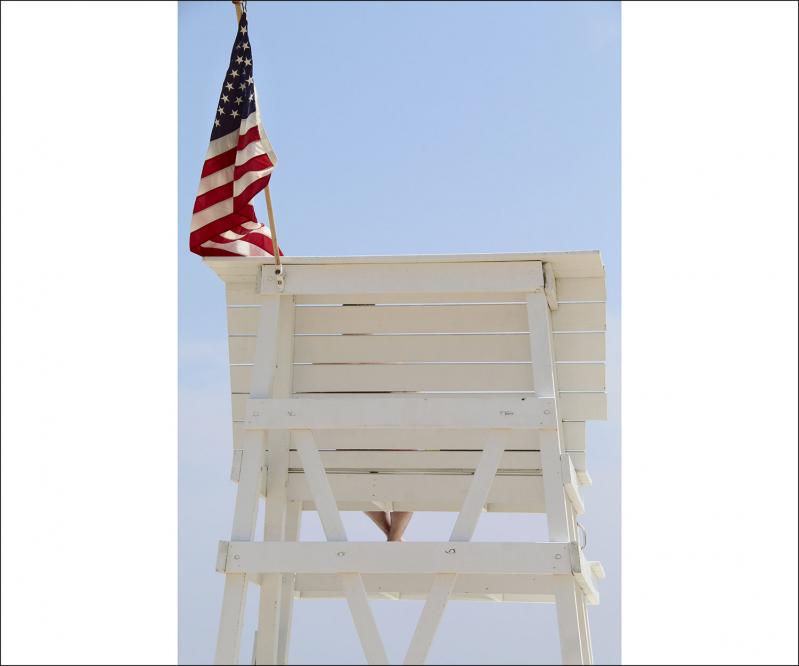It was the summer of 1992 when I decided to take one of my usual walks along Maidstone Beach. The Red Cross swim program was in session that day, and I noticed two teenage girls in the water and stopped to ask the instructor which course they were taking. She told me it was Advanced Senior Lifesaving.
That sounded good to me, as you never know when such knowledge might be useful. When I asked the instructor if there was an age limit, she said, “You have to be at least 16.” That was a surprise. I was expecting her to say you couldn’t be over 40. I was definitely over 16.
When I asked if I could join the class, she told me it was already on its second day. If I wanted to be in the program, she said, I had to come 15 minutes before class started the next day. She would test me then.
When I returned the next day, I was told the test consisted of swimming six different strokes for six laps between two buoys. The buoys were at least 100 yards apart. After my fourth lap, someone tapped me on the shoulder and said, “Okay, you’re in.” That was welcome news, as I was thinking I would never be able to finish all six laps. My children always laughed at the way I swam. I rarely seemed to come up for a breath, and my arms worked like windmills. Anyway, it always got me to where I was going.
There I was at age 57, a mother of four and a grandmother of two joining two young girls, one who wanted to be a lifeguard and the other a lifeguard for three years who was taking the course for recertification. I just wondered if I could compete with teenagers and pass the course.
This was a bay beach where there were slippery rocks, crabs biting at your feet, and jellyfish to be avoided. As the course progressed, I managed to keep up with my classmates. That was most reassuring. The first-aid part did not concern me since I was a registered nurse. The rescue part became a concern when we realized we would not be rescuing one another. Instead, the pretend victims would be “real” lifeguards who were much taller and more muscular than we were.
On the rescue test day, I was introduced to my pretend victim, a 6-foot-2 hunk of a man straight out of “Baywatch.” He swam out a good distance and began flailing and calling for help. I swam out to him and brought him to shore as instructed. That was a big sigh of relief.
I passed the course on a Friday and was overjoyed to receive my Advanced Senior Lifesaving certificate. The lifeguard received her recertification, but the 16-year-old did not pass the course. I thanked the instructor and went home.
The following Monday morning my telephone rang. It was the instructor. “So, Mary, are you ready to be a lifeguard?” she asked. I was shocked. “Do you know how old I am?” I answered. “You passed the course,” was all she said.
I thought about it for a week or so and decided to go for it. Since we were only coming out on weekends, that was my time of choice. I was given two Town of East Hampton Lifeguard T-shirts and told the station where I was to start.
As I approached that station on my first day, a young teenager asked if he could help me. He must not have noticed the lifeguard shirt I was wearing under my jacket. When he was told I was his partner for the day, his jaw dropped. “You were probably expecting some cute chick, but you got your grandma,” I said.
All my partners were teenagers. Despite the age difference, we got along well. Conversations ranged across all topics, and our music choices were different, but that was never a problem.
We rotated one hour on the sand and one hour in the chair. Climbing up the side of it was never a problem, but when the shift ended, jumping off, as my partners did, was not my choice. I just climbed back down one rung at a time, the same way I’d gone up. There would be no broken bones for me.
Every so often, one of the older women on the beach would come over to me and say, “Oh, Mrs. Fix, I feel so safe when you’re here.” I would always reassure them that my partners were just as capable. Fortunately, during my tenure as a lifeguard there were no rescues to be made, though our whistles did get a workout.
The town seemed happy to have me, especially on the weekends. After three years of working as a lifeguard, it was a surprise when they asked me to take the course again and recertify. Becoming a lifeguard in my late 50s was a challenge and something I am proud to have done, but it was time to try something different.
A few years later, I went to work on weekends at Gurney’s Inn as a spa nurse for nine summers. That was a title I never even knew existed. It was a very autonomous position. What a life!
Mary Fix is a summertime resident of Springs.

